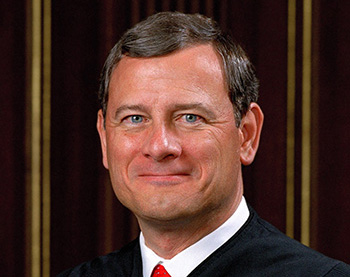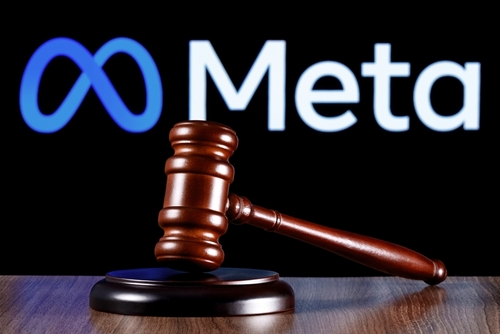Language lecture is among Supreme Court chief justice's greatest impeachment trial moments

U.S. Supreme Court Chief Justice John G. Roberts Jr.
U.S. Supreme Court Chief Justice John G. Roberts Jr. is out of the Senate limelight after the impeachment trial of President Donald Trump ended with an acquittal Wednesday.
Roberts’ role was largely ceremonial.
“The chief justice in terms of actual decisional authority is a potted plant,” said University of Missouri law professor Frank Bowman, who spoke with Courthouse News Service before the trial began.
There were moments, however, when Roberts took a stand and received some publicity, report Reuters, USA Today and CNN.
Among the highlights:
• In the early morning hours of Jan. 22, Roberts issued a warning about language following heated speeches, report the National Law Journal and Law360.
Roberts told House managers and Trump’s lawyers that they that they are “addressing the world’s greatest deliberative body,” a place where “its members avoid speaking in a manner and using language that is not conducive to civil discourse.” Roberts then recalled a 1905 impeachment trial of a federal judge.
In that trial, “a senator objected when one of the managers used the word pettifogging, and the presiding officer said the word ought not to have been used,” Roberts said. “I don’t think we need to aspire to that high a standard, but I do think those addressing the Senate should remember where they are.”
• Roberts was tasked with reading questions from senators. In one instance, Roberts refused to read a question from Republican Sen. Rand Paul of Kentucky. The question reportedly would have revealed the name of the anonymous whistleblower who first raised concerns about Trump’s phone call with the Ukrainian president. Politico, Courthouse News Service and the Washington Post had coverage.
• Roberts read a question from Democratic Sen. Elizabeth Warren of Massachusetts that asked about the possibility of diminished trust in the Supreme Court, the Hill reports.
The question read: “At a time when large majorities of Americans have lost faith in government, does the fact that the chief justice is presiding over an impeachment trial in which Republican senators have thus far refused to allow witnesses or evidence contribute to the loss of legitimacy of the chief justice, the Supreme Court and the Constitution?”
• There was no need for Roberts to respond to a tie vote when the Senate voted 51-49 on Jan. 31 against subpoenaing witnesses and documents. Roberts said he wouldn’t have broken the tie in any event, report USA Today, CNN and the National Law Journal.
“If the members of this body elected by the people and accountable to them divide equally on a motion, the normal rule is that the motion fails,” Roberts said. “I think it would be inappropriate for me, an unelected official from a different branch of government, to assert the power to change that result so that the motion would succeed.”



